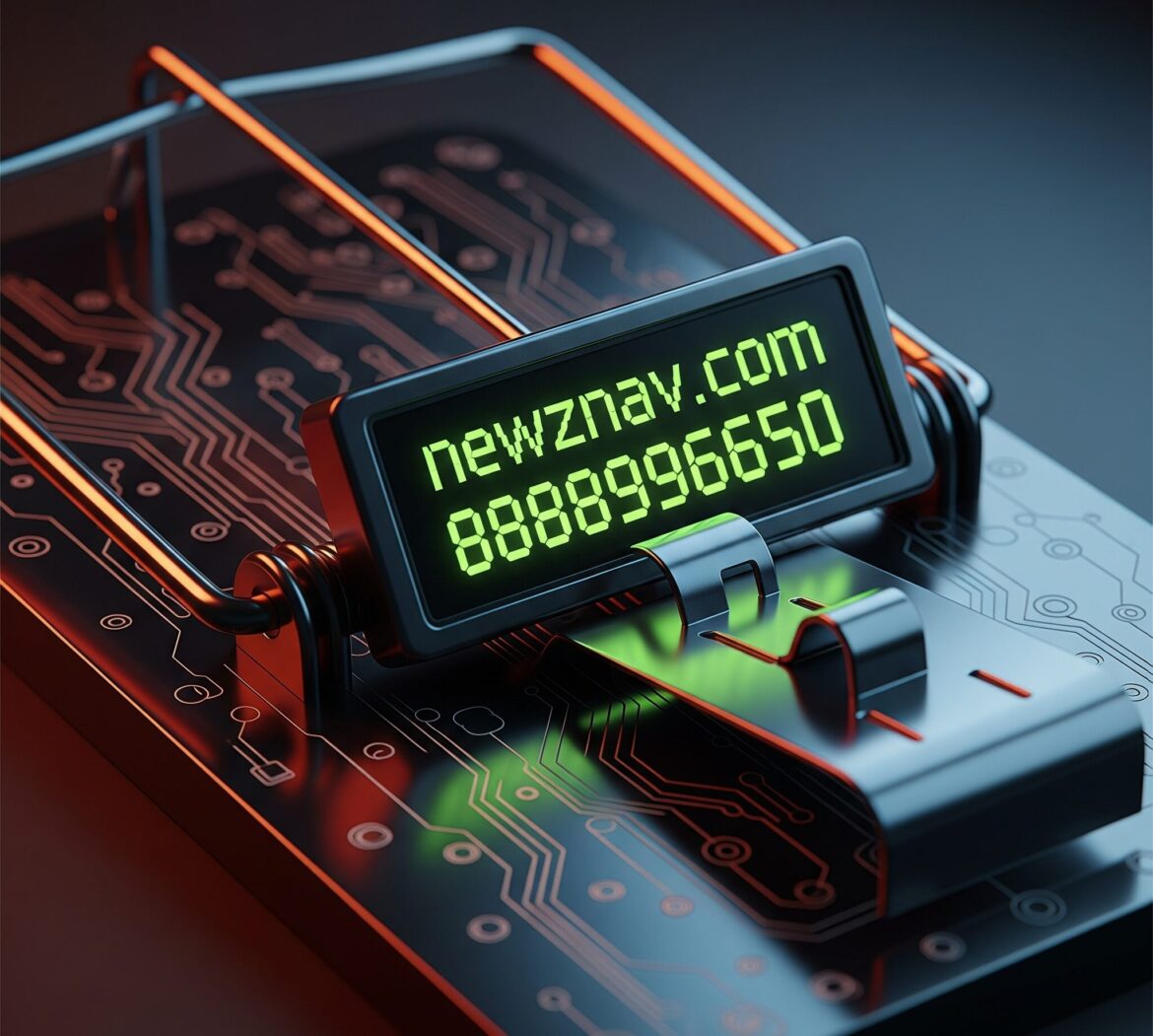Table of Contents
You’ve probably seen it. A weird string of text, almost like a glitch in the simulation: “Newznav.com 8888996650.” It pops up in YouTube comments. In random SMS threads. In the reply section of tweets that don’t seem related. It’s in Facebook Marketplace, Discord chats, and, somehow, even Amazon product reviews. It’s showing up everywhere.
And nobody really knows what it means.
Is it a bot? A prank? A digital graffiti tag from some script kiddie in Ohio? Or is it, stay with me, a breadcrumb from a much weirder story?
I’ve spent some time rabbit-holing this thing: domain registries, Whois data, TikTok explainer videos with 1.2 million views, obscure Reddit threads. What follows are seven working theories. Each one just plausible enough to keep you up at night.
1. A Mass Botnet Mistake
Let’s start with the boring (and maybe most likely) option: Newznav.com 8888996650 is the product of a large-scale botnet spamming campaign gone haywire. Spammers routinely inject weird links and numbers into comments to test platform filtering systems. Think of it as a “probe.” If the string isn’t flagged, then the spammers know it’s safe to push through more serious payloads.
The number? Possibly just a variable placeholder. Or maybe it’s meant to simulate a phone number, evoking a false sense of legitimacy. These campaigns are often designed by low-level actors scraping old codebases, some of which never got properly cleaned up.
But here’s the kicker. Why hasn’t it been scrubbed yet? Facebook and Google have filters. The persistence suggests this string is either evading detection or being deliberately ignored.
2. A Ransomware Calling Card
Some folks are convinced Newznav is less spam and more signal. In cybersecurity forums, there’s speculation it’s a signature, like a gang tag, left behind by a ransomware group. Not unlike how hacking crews once used ASCII art in code or left taunting messages in defaced websites.
Could 8888996650 be a victim ID? A phone number for negotiation? A challenge to security researchers?
We’ve seen this before. DarkSide, the group behind the Colonial Pipeline hack, used internal IDs in their messaging. It’s not out of the question that Newznav.com was a placeholder in leaked scripts that were never meant to go public.
3. Digital Graffiti for the Algorithm Age
Another theory: It’s not a mistake at all. It’s performance art.
A few years ago, an artist embedded cryptic URLs into Google Maps business reviews, creating a kind of ARG (alternate reality game) that led players to underground concerts. What if Newznav is doing something similar, only at a larger, stranger scale?
The number 8888996650 appears oddly rhythmic, almost chant-like. Some TikTokers have latched onto it as a meme, trying to “summon” it in comment threads like it’s a ghost. If you say it three times fast in an Instagram Reel, do the lights flicker?
We’re living in an era where attention is the most precious currency. Digital graffiti like this gets attention precisely because it doesn’t make sense.
4. SEO Poisoning
Search Engine Optimization used to be a science. Now, it’s more like alchemy. NewzNav might be an attempt to game it.
Here’s how SEO poisoning works. Malicious actors flood forums, comment sections, and low-quality sites with weird keyword combos (like “Newznav.com 8888996650”) to trick Google’s algorithm into thinking a domain is authoritative or trending. Once the string is indexed by enough pages, they can flip the domain into a money-making funnel for anything from affiliate scams to malware downloads.
When I checked Newznav.com’s DNS history, it had some red flags. Multiple name server changes in a short span, weird registrars, and recent ownership obfuscation. Not proof, but definitely smoke.
5. A Burned-Out Marketing Campaign
Here’s a more cynical idea. Someone paid for this.
We’ve seen guerrilla marketing tactics that intentionally try to “confuse” people into Googling something. Remember the “A24 is over party” hoax or the “Zepotha” fake movie trend? This could be in the same vein. Except the campaign either failed, or succeeded too well and lost control.
It wouldn’t be the first time a brand tried to manufacture a digital “mystery” to get attention. The irony, of course, is that if this was marketing, they’ve done everything wrong. No clear call-to-action. No landing page. No follow-up content.
Unless that is the content. Confusion becomes the campaign.
6. Low-Rent Phone Number Farming
Here’s something scuzzy. In certain parts of the scam economy, people mass-spam dummy numbers to see which ones generate callbacks. It’s a kind of reverse targeting. You seed a number like 8888996650 in public channels, then wait to see if anyone calls.
Why would someone call a random number? Curiosity. Suspicion. Or because their phone flagged it as “potentially important.”
If this theory holds, the number is likely tied to a VoIP line that logs incoming calls, harvesting live numbers for future scams. The website Newznav.com could just be a fake front, or worse, a honeypot designed to identify the overly curious.
7. It’s Just… Noise
And then there’s the existential theory. What if it means… nothing?
We spend so much of our lives parsing information, connecting dots, assuming intention. But not every anomaly has a designer. Sometimes a bit flips wrong. Sometimes scripts malfunction. Sometimes spam filters fail.
The internet is full of ghost data, of half-baked code snippets abandoned on servers, of misfiring bots and autocorrect quirks. “Newznav.com 8888996650” could be digital entropy, a meaningless burp from a poorly coded crawler. And we’re just projecting onto it, like constellations onto random stars.
Final Thought
I can’t tell you definitively what “Newznav.com 8888996650” is. But I can tell you it’s a mirror. It reflects our collective unease with how much of the digital world operates in shadows. It’s a reminder that for all our machine learning and algorithmic sorting, we still live in a vast and messy internet where strange things happen. And sometimes, just sometimes, they mean something.
Or maybe not.
Either way, I’ll be watching.

